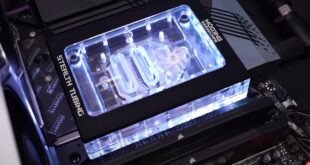A team of scientists at the University of California, San Francisco, has discovered a way to inactivate the CRISPR-Cas9 gene-editing system using newly identified bacteriophage proteins. The study was published on Dec. 29 in the online edition of the journal Cell.

Four newly identified CRISPR-Cas9 inhibitor proteins encoded by Listeria monocytogenes prophages prevent Cas9 binding and gene editing in bacteria and human cells, including currently the most widely used Cas9 from Streptococcus pyogenes. Image credit: Benjamin J. Rauch et al, doi: 10.1016/j.cell.2016.12.009.
CRISPR-Cas9 evolved in bacteria as an immune system to protect against viral infections, but in the past decade it has excited scientists as a general-use gene editing system, enabling them to quickly and efficiently modify genetic information and tweak gene activity in virtually any organism.
Many hope CRISPR will speed efforts to directly treat genetic disorders, among many other applications, but for the most part the technology has not yet proven quite precise enough, making occasional unintended edits along with the intended ones.
Bioethicists worry that the technology’s power and ease of use raise the possibility that it could potentially cause harm.
“The newly discovered anti-CRISPR proteins could help resolve both problems, enabling more precise control in CRISPR applications but also providing a fail-safe to quickly block any potentially harmful uses of the technology,” said lead author Dr. Joseph Bondy-Denomy, from the Department of Microbiology and Immunology and the Quantitative Biosciences Institute at the University of California, San Francisco.
To find such a switch, Dr. Bondy-Denomy and co-authors turned to the same billion-year arms race between viruses and bacteria that produced the CRISPR system itself.
In order to discover an anti-CRISPR protein that would work against the type of CRISPR-Cas9 system most labs now use, which depends on a protein called SpyCas9 as its targeted DNA clippers, they came up with a trick.
The researchers reasoned that they should be able to identify bacteria with inactivated CRISPR systems by looking for evidence of ‘self-targeting’ — bacterial strains where some virus had successfully gotten through the Cas9 blockade and inserted its genes into the bacterial genome.
They hypothesized that these phages must encode some anti-CRISPR agent, or else Cas9 would kill the bacteria by cutting its own genome where the viral DNA had been inserted.
The team examined nearly 300 strains of Listeria, a bacterial genus famous for its role in food-borne illness, and found that three percent of strains exhibited ‘self-targeting.’
Further investigation isolated four distinct anti-CRISPR proteins that proved capable of blocking the activity of the Listeria Cas9 protein, which is very similar to SpyCas9.
Additional experiments showed that two of the four anti-CRISPR proteins — which the researchers dubbed AcrIIA2 and AcrIIA4 — worked to inhibit the ability of the commonly used SpyCas9 to target specific genes in other bacteria – such as E. coli – as well as in engineered human cells.
Together, the results suggest that AcrIIA proteins are potent inhibitors of the CRISPR-Cas9 gene editing system as it has been adopted in labs around the world.
“The next step is to show in human cells that using these inhibitors can actually improve the precision of gene editing by reducing off-target effects,” said study first author Dr. Benjamin Rauch, also from the Department of Microbiology and Immunology and the Quantitative Biosciences Institute at the University of California, San Francisco.
“We also want to understand exactly how the inhibitor proteins block Cas9’s gene targeting abilities, and continue the search for more and better CRISPR inhibitors in other bacteria.”
_____
Benjamin J. Rauch et al. Inhibition of CRISPR-Cas9 with Bacteriophage Proteins. Cell, published online December 29, 2016; doi: 10.1016/j.cell.2016.12.009
 #Bizwhiznetwork.com Innovation ΛI |Technology News
#Bizwhiznetwork.com Innovation ΛI |Technology News



